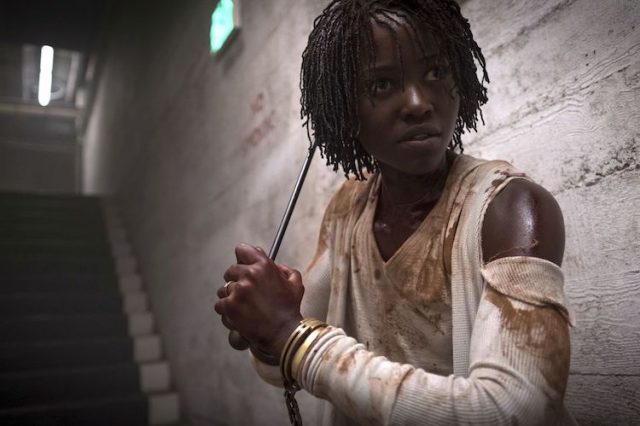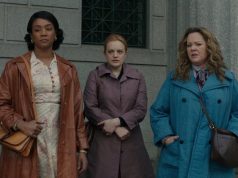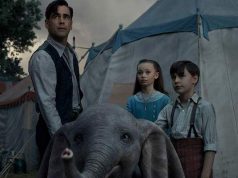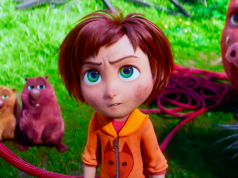
Jordan Peele, the newly minted horror auteur behind “Get Out,” gives us a lot to process in the early minutes of his follow-up, the suspenseful and more overtly horrific “Us.” We’re told of a network of underground tunnels in the United States (the “U.S.” of the title?); images of rabbits in cages accompany the opening credits; in a 1986-set prologue, a little girl sees a TV commercial for Hands Across America, then wanders off from her parents at the Santa Cruz Beach Boardwalk and has a scary experience in a house of mirrors; there are sightings of a Bible verse, Jeremiah 11:11; and in the present, that little girl has grown up to be Adelaide Wilson (Lupita Nyong’o), still traumatized by the 1986 incident as she and her husband and children relax at their summer house not far from where it happened.
You probably can’t tell from all of this where it’s heading, even if you happen to know what Jeremiah 11:11 says (“Therefore, thus saith the Lord, Behold, I will bring evil upon them, which they shall not be able to escape; and though they shall cry unto me, I will not hearken unto them” — an epigraph befitting most horror movies). That’s one of Peele’s talents as a storyteller: introducing compelling details without showing his whole hand, then entertaining us as he reveals everything.
The meat of the plot would seem to have almost nothing to do with the details already mentioned. One night at the summer house, Adelaide, husband Gabe (Winston Duke), and their kids Zora (Shahadi Wright Joseph) and Jason (Evan Alex) are alarmed by the arrival of a family of feral doppelgängers, one for each of them, all armed with intimidating pairs of scissors. Zora’s counterpart never stops grinning creepily; Jason’s crawls and grunts like a dog and wears a mask; the dad is bearded and mute except for groans. Only the Adelaide equivalent speaks, and it’s in gasps and whispers.
I’m obviously not going to tell you what the doubles want, but your assumption that it’s not good is astute. “Us” works reasonably well as a straightforward horror movie of the home-invasion sub-genre, and for a while Peele revels in the terrifying chaos he’s created. Four family members each having a designated assailant (I believe the sportsmen call this man-to-man defense) means Peele gets to cut back and forth among four separate nightmare scenarios happening simultaneously. He has an acute sense of how to shoot and edit a scene for maximum suspense, and while he doesn’t wallow in blood he isn’t afraid of it, either. “Us” has light moments, including a few that I’m not positive Peele intended to be funny, but overall it’s a serious, methodical, intensely focused horror story that plays with light and shadows visually as well as thematically.
But it’s also an allegory, and that’s where it gets tripped up. When asked who they are, Adelaide’s double (let’s call her Badelaide) replies, “We’re Americans” — a non sequitur that signals another layer of meaning we should be looking for. The last 30 minutes of the film make it clear that what we’ve seen shouldn’t be taken literally, if only because the explanation for it all doesn’t make sense literally. But even as an allegory it’s muddled. If there’s a specific point Peele is trying to make — and I get the feeling he’s trying to make several — it gets lost in the sheer volume of stuff going on.
Lupita Nyong’o is astonishingly good as Adelaide and Badelaide, who look alike but have different personalities and mannerisms. Nyong’o is, at various times, creepy, gorgeous, fearsome, vulnerable, and frantic, and she’s never less than 100 percent committed. The finale isn’t entirely satisfying on a horror level, and the whole thing is only partly effective as a “We have met the enemy and he is us” metaphor, but Nyong’o is the real deal from start to finish. And even if I didn’t love the film, I suspect I’ll be thinking about it for a long time.
B (1 hr., 56 min.; )





